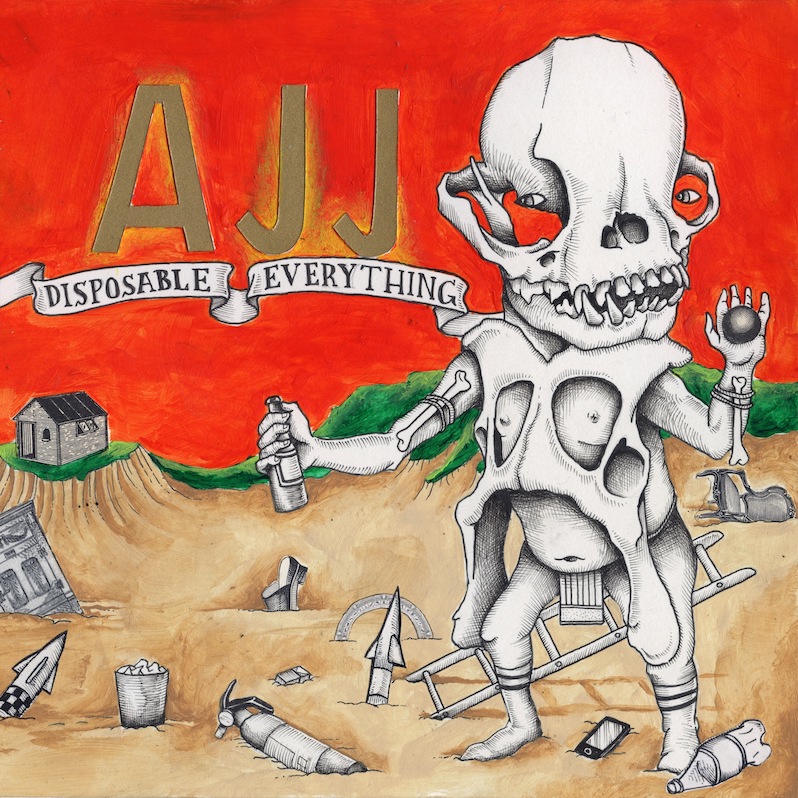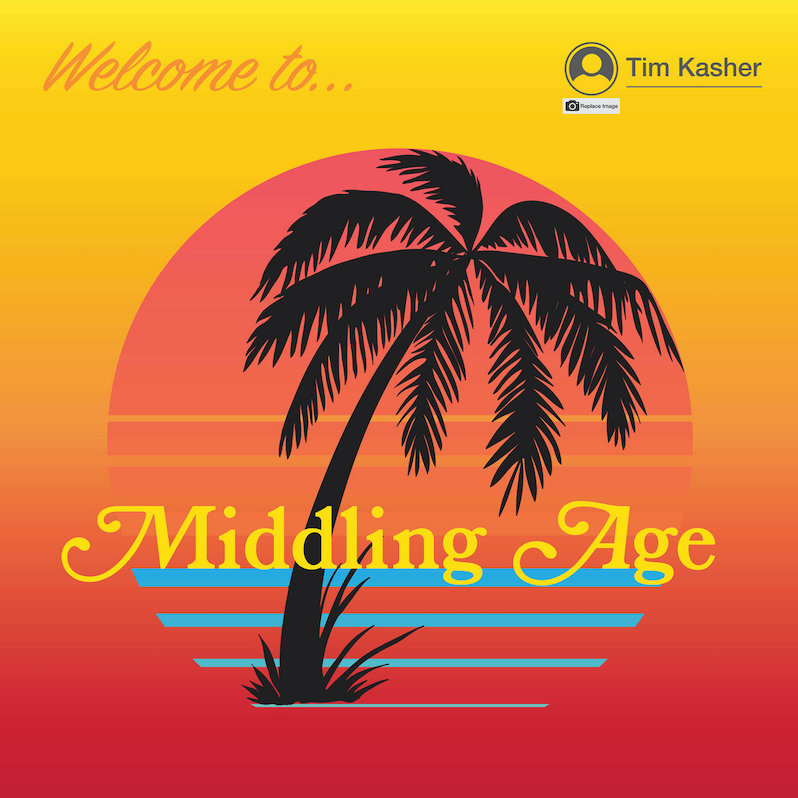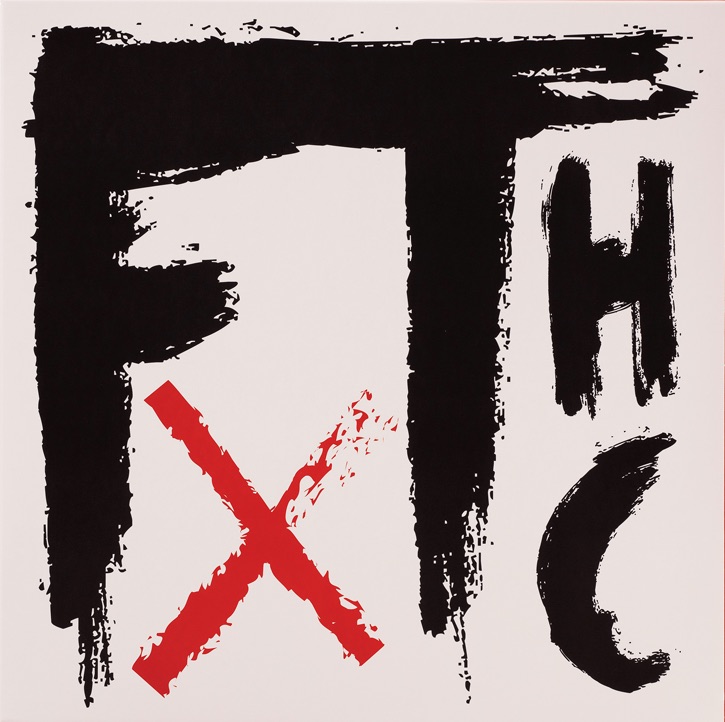AJJ : Disposable Everything

In a world as horrifying as our own—where the giant boot of uber-capitalism gleefully stomps the planet into fiery and premature annihilation in the name of shareholder profits—it can be easy to feel numb to, or even bored by, any news that reaffirms to us just how precarious the situation really is. So, we are fortunate to have bands like AJJ. These days, any old schmo can rant about doom, gloom and dystopian disaster. It takes a special spark of twisted creativity to look at things with a fresh new perspective, and then make an observation from an angle so haunting, so harrowing, so gutturally unhinged, that it shocks us to our core, and forces us to pay attention all over again.
That’s been AJJ’s party trick for the past 20 years, and now, with Disposable Everything, they’re attuning their focus toward climate change, rampant commercialism, and the general sense that humanity has surrendered itself to the philosophical underpinnings of an economic system that, if left untempered, will quite probably kill us all. “I’m not being hyperbolic / This place is a death machine!” vocalist Sean Bonnette warns in “Death Machine,” one of the album’s more upbeat offerings. The title track lays out the record’s concerns in a far more sincere, sombre mood, with a swooping, mournful violin complimenting Bonnette’s list of things that we take for granted when polluting the environment with our waste has become normalized: “Disposable family / Disposable dignity / Disposable Holocene / Disposable packaging.” In the opener, “Strawberry (Probably),” even love itself is proffered in terms of an economic transaction, as if that’s the only terminology we have left to describe even the most personal of human experiences – “Why not take all of me … Try it on / Wear it out / Of the store.”
But there’s a slight tonal shift between this album and the releases that precede it. Disposable Everything is often less abstract, more candid, than the AJJ we’re used to, relying less than before on macabre, nonsense imagery to get the point across. The resulting effect is pretty compelling: in the past, the band’s dark surrealism has acted as a kind of pressure valve—an odd but effective way of reassuring the listener that, yes, everything is nightmarishly fucked, but you don’t need to worry too much, because I—your narrator—am also clearly insane. And make no mistake, Disposable Everything does engage in its fair share of poetic terrorism, “A Thought Of You” and “In The Valley” being two noteworthy examples. But on the whole, the album is remarkably straightforward, trading in the band’s usual quivering mania, half-terrified-half-awestruck, for the frank, no-frills clarification that yes, we are all, indeed, completely doomed. It draws us to the conclusion that maybe these aren’t just the ravings of a madman; maybe everything really is just as bad as Bonnette declares it to be.
But what’s more compelling still—and more invigorating—is that AJJ really don’t sound so down about that. For all the lyrical focus on the end of the world, the instrumentation is largely fun, honest, and freeing. “The Baby Panda,” which opens with the admission that “I let the baby panda die, and now it’s not coming back,” is jaunty enough to be a showtune, while “Schadenfreude” expresses Bonnette’s “joy when a dickhead is thwarted” with all the garish exuberance of a carnival band. It’s an intriguing mixture of cheerfulness and despair that balances out to something you might call acceptance. And that’s the final stage of grief, after all.
And if you can accept the fact the planet’s falling to pieces, then, well, you’re doing better than the rest of us. “Strawberry (Probably)” might be making the point that love can now only be expressed in economic terms. But that shouldn’t undermine the fact that it is still, despite everything, being expressed. The song’s dizzyingly euphoric outro is built around the refrain “Everything is free now!” In a world where the capitalist greedocracy rules supreme, that’s one of the most subversive, romantic statements imaginable.
Label: Hopeless
Year: 2023
Similar Albums:




